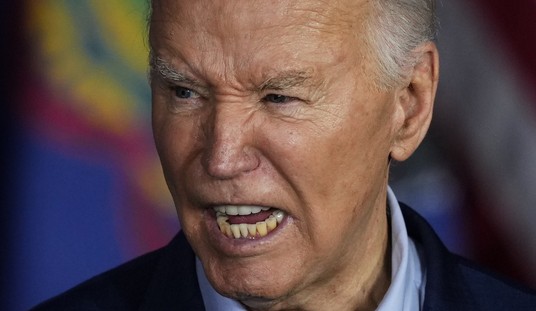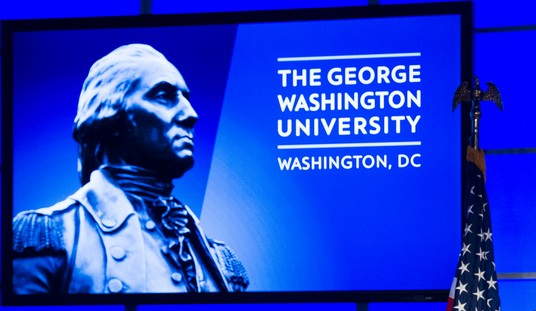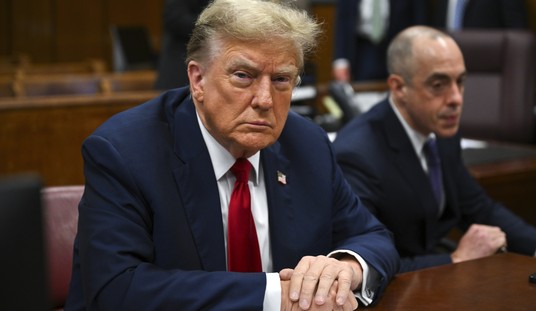Looking out at the dreadful but lovable 1962 Mets, Casey Stengel used to wail, “Can’t anybody here play this game?” Were he here to watch today’s not so lovable Republican leadership in action, “the Ol’ Perfessor” would be making the same observation.
As reported by PJM’s Bridget Johnson, with Beltway fixtures John McCain and Lindsey Graham pointing the way, the GOP has loudly demanded that Attorney General Eric Holder name a “special counsel” to investigate Obama administration leaks of national defense information to the New York Times. Seeing his opportunity to bury this embarrassing episode until after the November election, Holder is naturally accommodating them — or at least doing enough to appear to accommodate them that the media will applaud as the story goes dark.
The whole thing is a farce. You don’t need a special prosecutor to know who talked to the Times. All you need to do is read the two stories — the first on Obama’s assassination list and the follow-up on cyber-warfare. The Times tells you who its sources are. At the very beginning of the 6300-word kill-list epic, it says: “In interviews with The New York Times, three dozen of [Obama’s] current and former advisers described Mr. Obama’s evolution since taking on the role, without precedent in presidential history, of personally overseeing the shadow war with Al Qaeda.” The account goes on to quote, for example, former White House chief-of-staff Bill Daley, who not only confirms the existence of a kill-list but describes the considerations behind adding names to it. Current and former national security officials are quoted, in many instances by name (e.g., national security adviser Thomas Donilon and former national intelligence director Dennis Blair). And when names are not given, the Times quotes, for example, “one participant” in the approximately weekly meetings — videoconferences run by the Pentagon but involving national security officials across the administration — who describes some of the criteria for adding or removing terrorists from the kill-list.
Furthermore, at the very beginning of the cyber-war article, the Times describes “a tense meeting in the White House Situation Room” in which the president, vice-president and CIA director deliberated over whether the “Stuxnet” worm that had so vexed Iran’s nuclear efforts had been compromised. The report elaborates: “‘Should we shut this thing down?’ Mr. Obama asked, according to members of the president’s national security team who were in the room.” There is no mystery here. The report goes on to say that current and former American officials involved in the program provided information to the Times — and that “none would allow their names to be used because the effort remains highly classified.” In other words, they knew full well that they were disclosing information that should not be disclosed and they demanded the cover of anonymity before doing so (and the Times, for its part, is protecting them because the paper, too, knows that what is being published should never have been shared with its reporters).
President Obama’s mock outrage at yesterday’s press conference — “The notion that my White House would purposely release classified national security information is offensive!” — was laughable, albeit with an Alinskyesque flair. Notice he referred to “my White House” not “my administration.” This allows him to feign indignation while later saying he was referring only to current (not former) members of his White House staff. But if you know how these things work, the information the Times got is almost certainly not coming directly from the current White House staff; it comes (just as the stories themselves expressly indicate) from intelligence agencies, other administration officials, and former White House staffers who no doubt got the green-light to speak. And note that the Times reporters — who would ordinarily refuse to discuss their sources at all, but make an exception when it comes to covering for The One — are careful to deny, as the Daily Beast put it, that “the information was spoon fed to them from the White House.” Well, no — it was fork-lift fed to them by executive branch agencies and former administration officials.
So we know where the leaks came from. Now we’re down to putting a particular name on particular leaked information. Relatively speaking, that is a matter of close to zero importance. The lesson here — of far more political than legal significance — is that President Obama is a reckless custodian of the nation’s secrets. That is yet another good reason why it is so important to defeat him come November. The rest — who said what — is details. It’s the guy in the Oval Office who sets the tone. And that guy, by the way, is fully empowered to declassify whatever information he chooses to declassify, no matter how sensitive, no matter how damaging its disclosure. So if it turns out that Obama effectively approved the leaks, they are probably not actionable disclosures of classified information anyway.
But that does not mean Republicans should refrain from putting this shameful administration performance under the public spotlight. And that’s where McCain and Graham come in. They want a special counsel, independent of the administration and it Justice Department: Some bipartisan eminence, much like themselves, such as the ostentatiously bipartisan former Utah Senator Bob Bennett, who — since being run out of Dodge by the Tea Party — is ensconced at the Bipartisan Policy Center and, according to McCain and Graham, “enjoys bipartisan respect.” This was Washington 101, meaning: exactly the wrong move. No wonder Holder has decided to (sorta) accommodate the senators.
There are a number of reasons why calling for a special counsel is foolish. I’ll just address the top two. First, once a criminal investigation is officially opened, all the public flow of information stops. The Justice Department will now have a legitimate basis to tell Congress and the media that criminal investigations are secret — particularly once a grand jury is impaneled, subpoenas start being issued, and investigators start conducting interviews. Congress will also be stonewalled by other potential sources of information, who will tell staffers that, on the advice of counsel, they can neither comment on matters under investigation nor share any relevant documentary information. We, the public, will hear nothing more about the case until Holder’s handpicked team is good and ready to tell us.
Leak investigations rarely go anywhere. The most direct route to the relevant evidence is to subpoena the reporters, which investigators — guided by DOJ guidelines and First Amendment jurisprudence — tend to resist until all other possible sources of information have been exhausted. If we ever got to that point, it would take weeks, if not months. And then, in the event the reporters are subpoenaed (possible, though I wouldn’t hold my breath), the Times will tie the prosecutors up for weeks or months of litigation over the subpoenas, after which, even if ordered to testify, the reporters will refuse, even if that means going into contempt. The melodrama, if permitted to play out to its full extent, would take us long past the November election — which is exactly what the administration wants.
The other reason that screaming for a special counsel is dumb is that special counsels are unconstitutional — for the reasons outlined by Justice Scalia, whose brilliant Morrison v. Olson dissent has repeatedly proved prescient since he wrote it in 1988. Prosecution is an executive responsibility, and the Constitution vests all executive power in the president. If the prosecutor appointed is not independent of the executive branch, he cannot investigate credibly; but if he is independent of the executive branch, he cannot investigate legitimately. And the Constitution aside, the institution of the special counsel (or independent prosecutor) has been a catastrophe, dogging administrations of both parties, substantially undermining their capacity to govern.
Naturally, Holder is not going to let what happened to Reagan, Bush 41, Clinton, and Bush 43 happen to Obama. He is assigning the investigation to two sitting U.S. attorneys: Ronald C. Machen of the District of Columbia, who was appointed by Obama and whose history includes some high-profile public corruption prosecutions and … a number of donations to Obama’s campaigns; and Rod J. Rosenstein of the District of Maryland, who was appointed by George W. Bush. Rosenstein is a long-time DOJ hand who enjoys — what else? — bipartisan respect, having served as a top aide in the Clinton Justice Department. Rosenstein’s resume includes many public integrity investigations and a prior stint as an independent counsel — during which he found no basis to prosecute Clinton White House officials who had obtained FBI files. To help get to the bottom of the mess and ensure the safe-keeping of classified information, Messrs. Machen and Rosenstein will be assisted by lawyers from DOJ’s own National Security Division.
That is, everyone on the team reports to Holder and, ultimately, Obama — they are not independent. The attorney general has shrewdly moved with apparent speed and responsiveness to address congressional concerns. He will be portrayed as having assembled a team of well-respected investigators who will home in on corruption while being meticulously careful about the top-secret intelligence that must be sifted through and the First Amendment concerns attendant to leak cases. The existence of the well publicized investigation will stop the public flow of information, and the team will get back to you by, say, late 2013 or early 2014, with what they’ve discovered. Maybe we’ll still remember what they were investigating … but I doubt it.
From a public interest standpoint, prosecuting the leakers is of minimal importance. We already know, in general, where the leaks came from (the Obama administration) and why national defense information was disclosed to the press (to burnish the president’s image as a decisive commander-in-chief as he heads into a tough reelection campaign stretch-run). If someone really deserved prosecution, that can always be done later — there’s a five-year statute of limitations on most federal crimes.
The salient matter at the moment is political accountability, not legal retribution. This transgression needs to be subjected to intense public scrutiny, as only Congress can do. What this situation needs right now is congressional hearings and political pressure to draw out the officials who gave information to the Times and to demonstrate the extent to which national security has been subordinated to the Obama reelection effort. Yes, the Obama administration would have stonewalled Congress, but that would only call more public attention to what the administration has done and how indefensible it is.
Instead, with their “special counsel” folly, Republicans have given the administration the means to throw the curtain over this debacle. They’ve also enabled Holder, with the help he’ll get from the press, to portray the administration as taking swift, decisive action to root out leakers — even though the reality is that there will be nothing swift or decisive about it.
Can’t anybody here play this game?







Join the conversation as a VIP Member